Dogo Argentinos are bred to be very large and effective big-game hunters. Until very recently, they were almost exclusively purpose-bred. Therefore, they tend to be very healthy. After all, a sick hunting dog won’t do you much good!
However, they are still prone to some health issues. Most of these arise from their larger size. At nearly 100 pounds, these dogs are massive. Their extremely large size makes them more prone to certain health issues, especially those related to their joints.
1. Hip Dysplasia
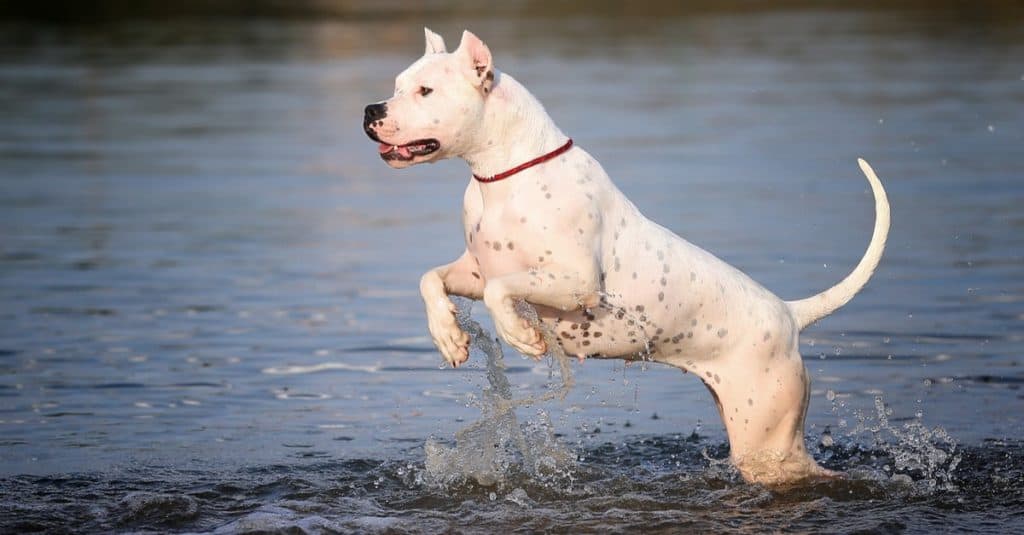
These dogs are very large, which makes them prone to hip dysplasia.
©Ershov_Andrey/Shutterstock.com
Hip dysplasia is one of the most common problems for this breed. Because they are so large, they take longer to grow. If not fed and exercised properly, they can develop hip dysplasia. This condition is partially genetic, but environmental problems also cause it.
Often, hip dysplasia is minor. However, it’s often progressive, meaning it gets worse with time. Your dog may have arthritis-like symptoms at a very young age.
2. Periodontal Disease
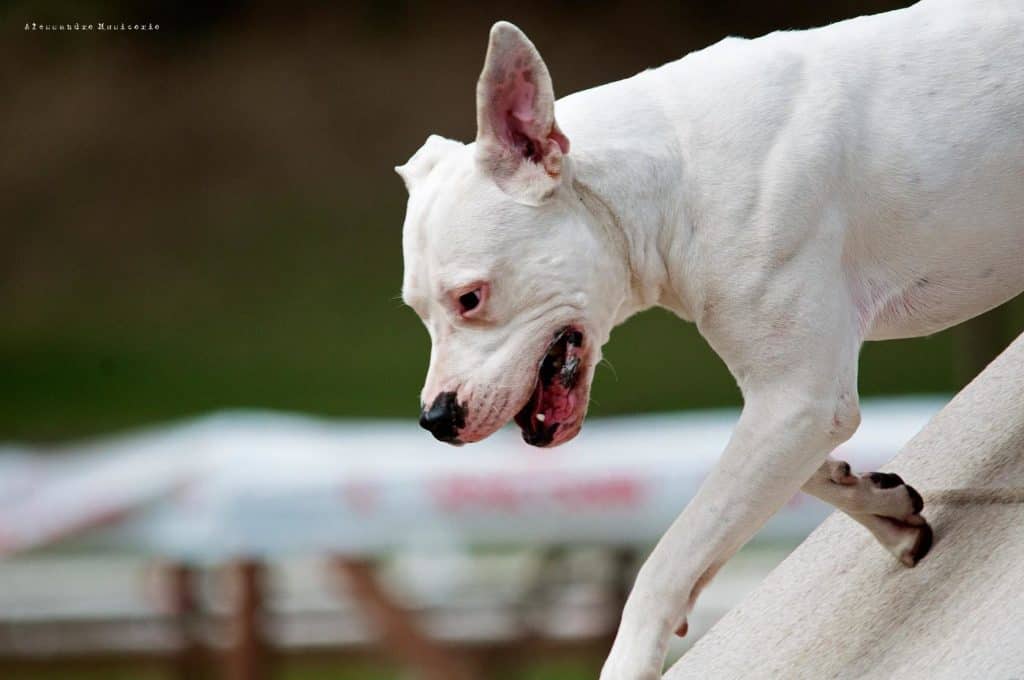
Just like all dogs, Dogo Argentinos can develop dental problems if their teeth aren’t properly cared for.
©f/orme Pet Photography / Flickr – Original
Sadly, dental disease is incredibly common in dogs. Dogo Argentinos aren’t more prone to this condition than any other canine. However, its significant prevalence means your dog has a good chance of experiencing it. Luckily, most dental disease is preventable with regular tooth-brushing. Start using a dog-friendly toothbrush and toothpaste at a young age.
Cleaning your dog’s teeth at least three times a week is recommended, but more is often better. Annual dental cleanings may also be necessary. While these can be an extra cost, they help reduce the chance of more significant issues later on.
3. Gastric Dilatation and Volvulus
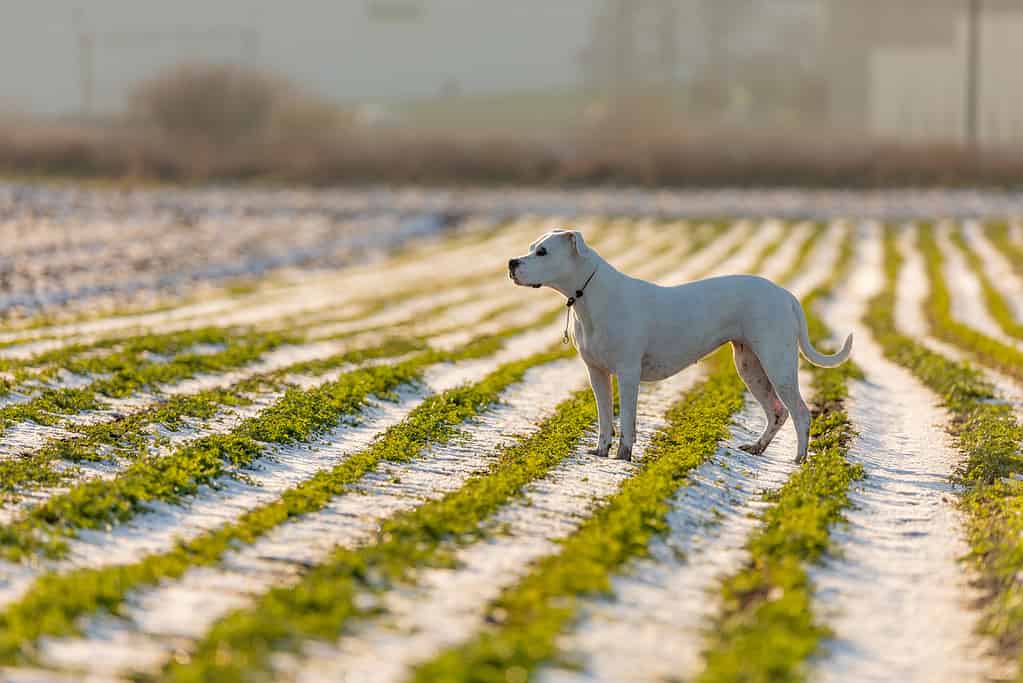
As you can see, these dogs have a deep chest, which makes them prone to bloat.
©Rafal Rutkowski/iStock via Getty Images
This condition is commonly referred to as “bloat.” However, it’s much more than just being a little gassy.
Bloat occurs most often in large, deep-chested dogs. When it occurs, the stomach fills up with gas and flips, preventing the gas from leaving. The stomach slowly keeps expanding, cutting off blood supply to the stomach and surrounding tissue. The tissue can die very fast if the condition isn’t addressed right away.
Usually, surgery is necessary. Preventative surgeries are also available, but they’re usually only done in very at-risk breeds, and the Dogo Argentino likely doesn’t fall into this category.
4. Deafness
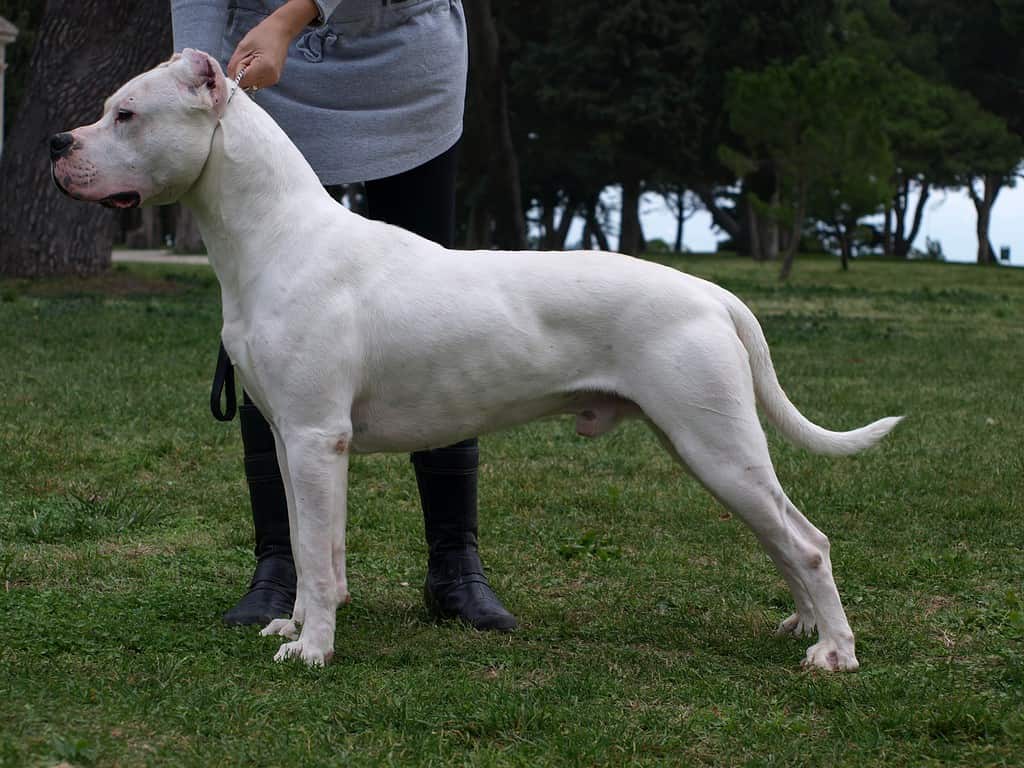
Pure-white Dogo Argentinos like this one are more prone to deafness than those with more patches.
Sadly, Dogo Argentinos are prone to congenital deafness. As many as 25% of these dogs will be deaf in at least one ear. This condition occurs at birth and isn’t cureable. Some breeders may offer hearing tests on puppies before sending them to their forever homes.
It does seem that this deafness is linked to a dog’s pigment. In other words, whiter dogs are more likely to be deaf, while puppies with patches are less likely to be deaf. Therefore, if you want to avoid picking a deaf puppy, your best bet is to choose one with spots.
5. Laryngeal Paralysis
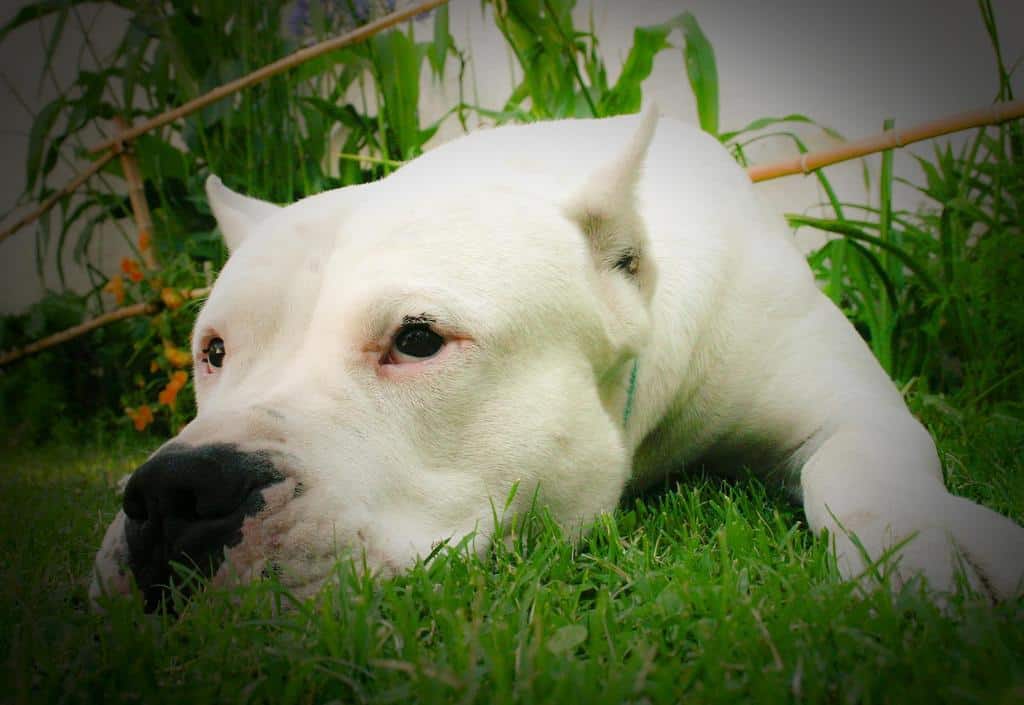
Luckily, Laryngeal paralysis is rarely deadly, but it may require surgery to correct the abnormality.
©Ormando SLR / Flickr – Original
This condition occurs most commonly in large-breed dogs, including the Dogo Argentino. Laryngeal paralysis is caused by a problem with the nerve that opens and closes the larynx. This condition causes the larynx to not open or close properly. When this occurs, your dog may have breathing issues or make weird sounds when they breathe.
Often, this condition requires at least some surgical intervention, especially in severe cases.
6. Hypothyroidism
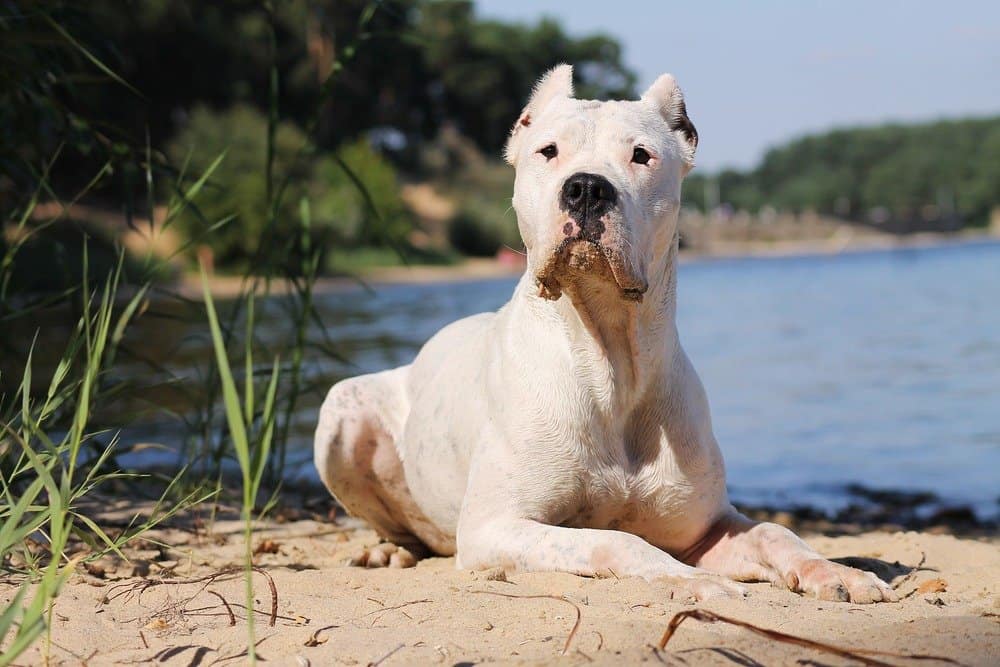
Larger dogs are more prone to thyroid issues, which includes the Dogo Argentino.
©Eve Photography/Shutterstock.com
Hypothyroidism is when a dog’s thyroid gland doesn’t produce the proper amount of thyroid hormone. Without enough of this hormone, your dog will end up with weight gain, coat problems, and an increased susceptibility to infections. They may also have far less energy.
For one reason or another, large breeds are more prone to this condition. Of course, Dogo Argentinos are pretty big!
7. Eye Conditions
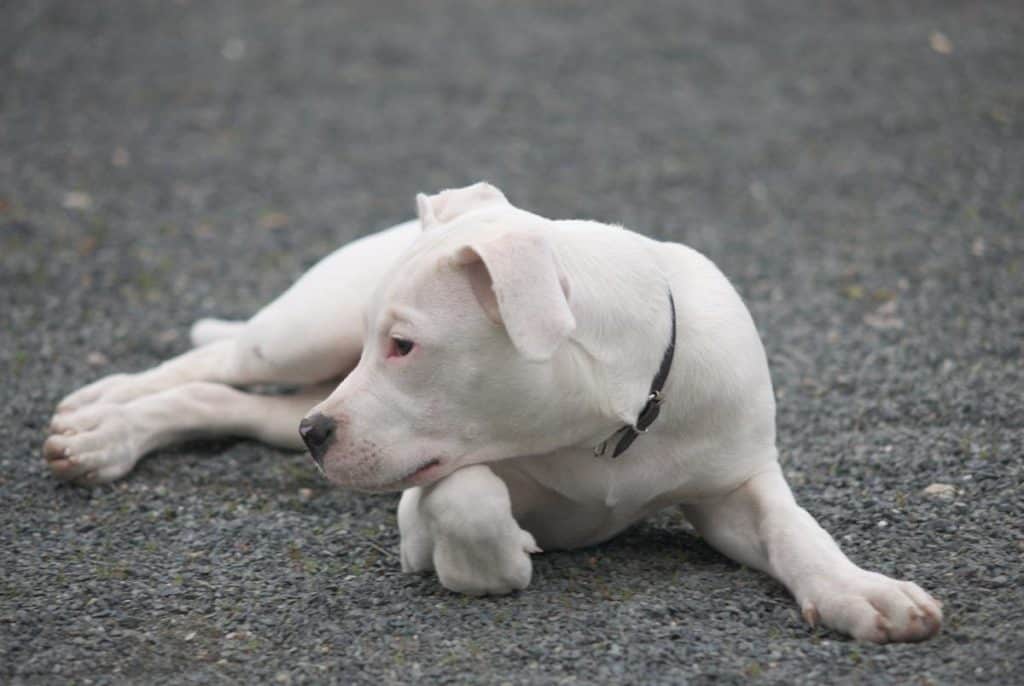
Dogo Argentinos are most prone to eyelid malformities. However, they can also develop other eye conditions.
©Janne / Flickr – Original
Sadly, most dogs are prone to eye conditions. Progressive retinal atrophy is a relatively common genetic eye condition across all breeds. This eye issue leads to the retina slowly degenerating, causing blindness. There is no cure, but this condition is 100% genetic. Therefore, good breeding can theoretically prevent it.
Dogo Argentinos are particularly prone to eyelid abnormalities. Luckily, these conditions are mostly fixed with minor surgery, where the problem with the eyelid is corrected.
In many cases, choosing a good breeder can help prevent many of these genetic issues.
The photo featured at the top of this post is © Hanna Dymytrova-Kaihila/iStock via Getty Images
Ready to discover the top 10 cutest dog breeds in the entire world?
How about the fastest dogs, the largest dogs and those that are -- quite frankly -- just the kindest dogs on the planet? Each day, AZ Animals sends out lists just like this to our thousands of email subscribers. And the best part? It's FREE. Join today by entering your email below.
Thank you for reading! Have some feedback for us? Contact the AZ Animals editorial team.







